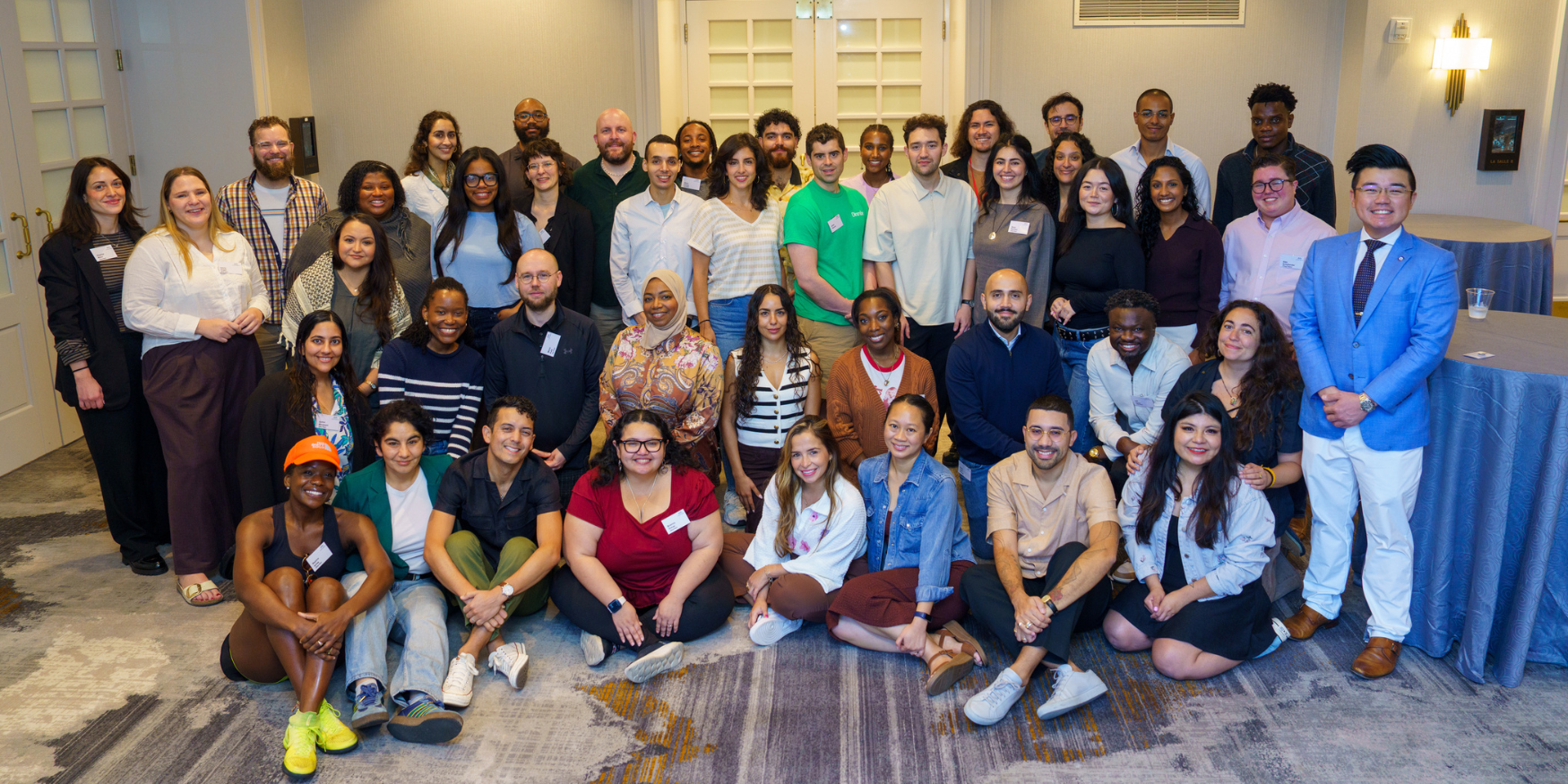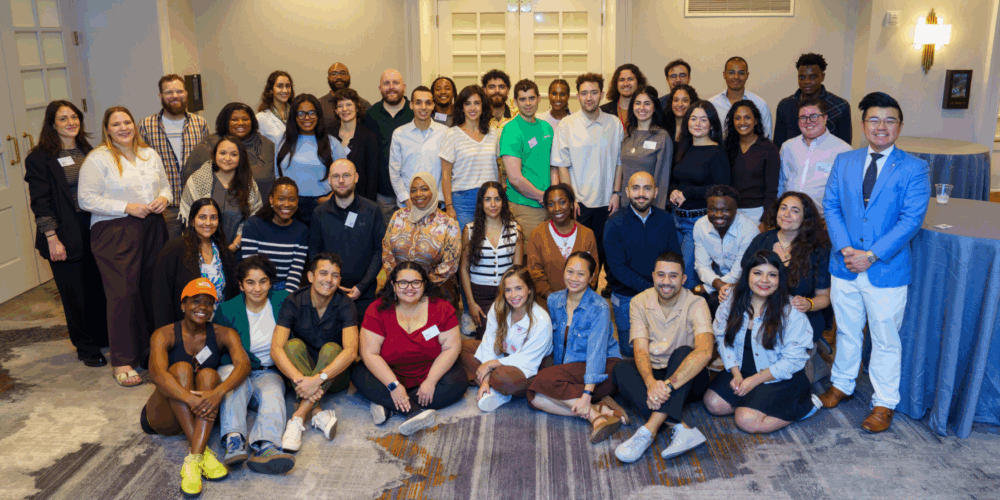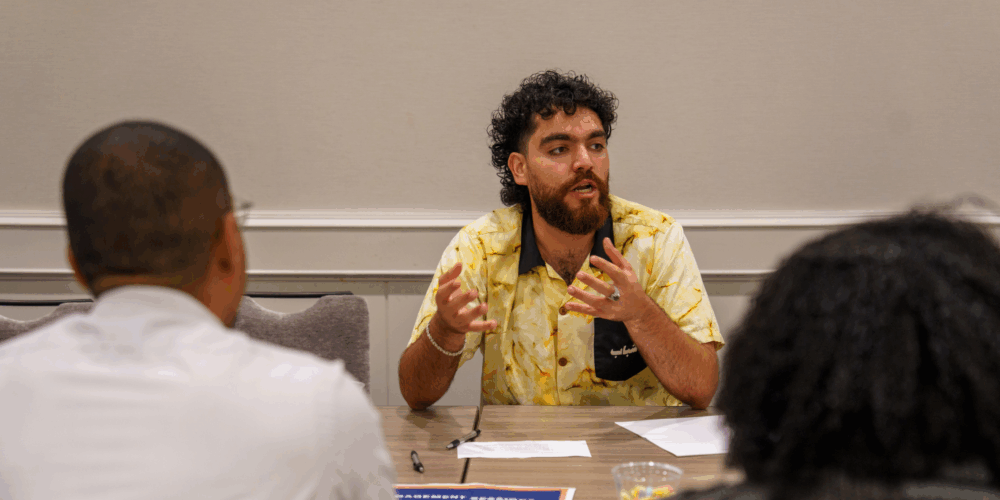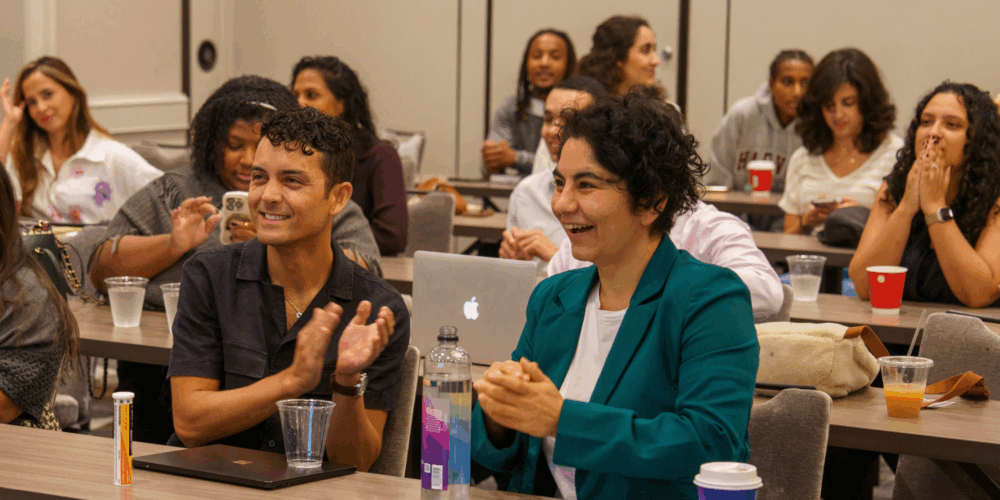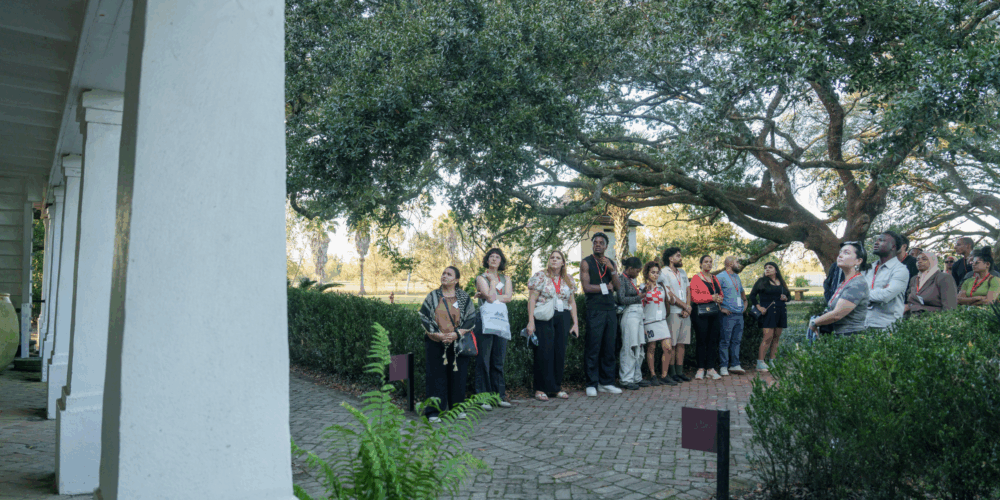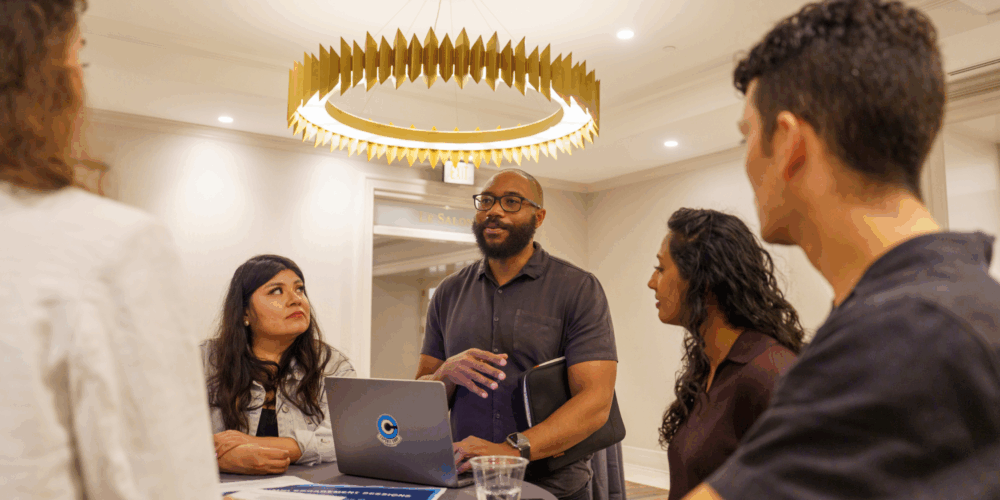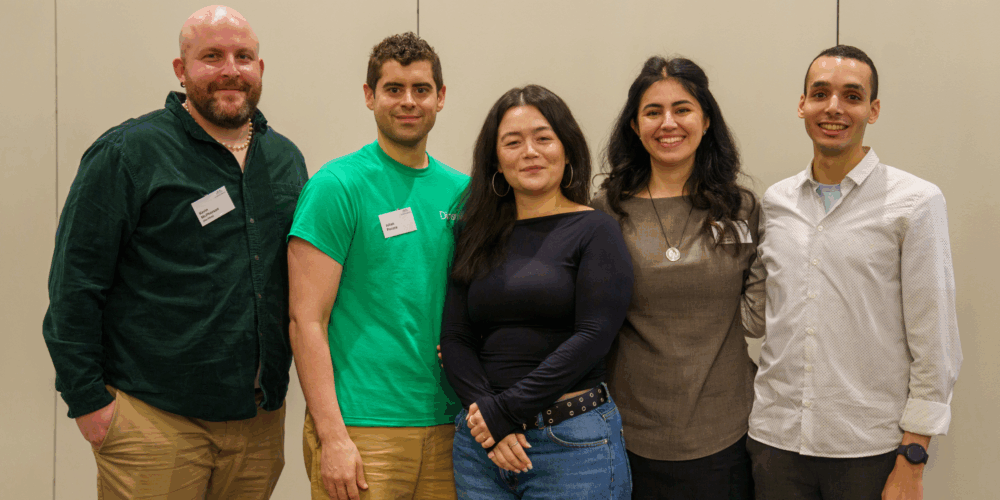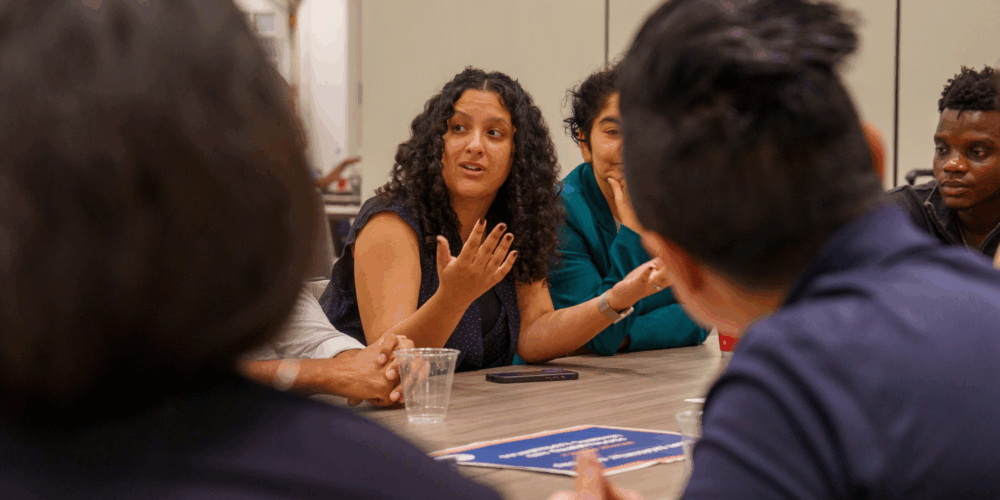Reckoning With a Restless World: Populism, Power, and the U.S.–German Alliance
The fourth New Bridge Program Alumni Conference brought together fifty U.S. and German young professionals in New Orleans from November 6 to 8. In this essay, our reporting team analyzes the development of the U.S.–German relationship through the lens of the conference’s insights.
The New Bridge Program Alumni Conference in New Orleans opened with a panel conversation on US-German relations between Christopher Fettweis, Professor of Political Science at Tulane University and Markus Hatzelmann, Deputy Consul General for Germany in Houston.
The conversations that emerged from this panel crystallized a broader reality: the transatlantic relationship finds itself in an era of profound uncertainty, shaped not only by external threats but by internal pressures that challenge the self-image of both Germany and the United States as “leaders of the free world.” Beneath the surface of diplomatic continuity lies an unresolved question—whether today’s sense of crisis is a fleeting disruption or a structural reordering of global power that the West was never ideologically or strategically prepared for.
The claim that we live in a golden age of peace and security with current conflicts merely representing the last shot of the first cold war, glosses over the fundamental shift in great power competition. As noted by legal theorist Mary Dudziak, the nature of modern conflict challenges the traditional measurement of “wartime” versus “peacetime” (War Time: An Idea, its History, its Consequences).
“Soft power alone cannot anchor European security.”
The German realization that soft power alone cannot anchor European security marks a historic shift: Berlin’s renewed military investment reflects not just Russia’s aggression, but the broader foreign-policy recalibration of a U.S. increasingly preoccupied with domestic affordability, inequality, and strains on its own democratic institutions. American soft power, long buoyed by the mythology of the “American Dream,” has become entangled with political polarization and public skepticism toward global engagement. Especially as Trump sends National Guard troops in U.S. cities to symbolize his own power and keep unwelcome opinions at bay (The New York Times 2025).
These domestic currents influence the transatlantic equilibrium as much as external pressures from Moscow, Beijing, and non-state cyber actors. Ultimately, the future health of the transatlantic relationship depends less on historical sentiment and more on a clear, shared commitment to meet contemporary security challenges with commensurate resources and resolve. If the European pillar, led by Germany, fails to demonstrate equal rigor in the face of digital and analog warfare, and the U.S. continues to turn inward, the “up and down” cycle we’ve gotten used to in US-German relations risks becoming a permanent divergence.
Populism as a Stress Test, Not a Sideshow
The rise of populist movements on both sides of the Atlantic, the MAGA movement in the U.S. and the AfD in Germany, should be understood less as aberrations and more as stress tests of each country’s democratic architecture. They reflect a renegotiation of the social contract amid demographic, economic, and generational change. Populism reframes public grievances as existential threats, blurring the lines between legitimate critique and institutional delegitimization. Yet, history suggests that democratic societies tend to experience such periods as oscillations rather than endpoints. What matters is the resiliency of the institutions being tested—and here, both the U.S. and Germany possess deeper democratic guardrails than their current politics might suggest.
Still, the geopolitical implications of these internal dynamics are significant. A West struggling with its own coherence cannot project a unified model of freedom or prosperity. Nor can it rely on assumptions that shaped the post–Cold War world: that economic integration guarantees peace, that information technology inherently empowers democratic movements, or that military conflict remains confined to visible battlefields. In New Orleans, participants underscored how cyberwarfare, disinformation, and drone-based conflict have dissolved the line between war and peace—forcing both countries to rethink how power is understood, exercised, and defended.
Local Realities as Geopolitical Mirrors
New Orleans itself, with its history of resilience, its climate vulnerability, its racial inequities, and its cultural depth, served as a grounding lens for these global questions. The city’s local challenges mirror many of the systemic tensions defining the transatlantic debate: who bears the burden of “resilience,” what inequities erode public trust, how climate injustice reshapes political identity, and how communities respond when institutions fail to protect them. Ignoring these local dynamics—whether in Louisiana or in Saxony—means misunderstanding the forces reshaping global politics. Domestic and geopolitical stability are now inseparable.
The conversations in New Orleans did not offer certainty, but they did point to an emerging hypothesis: that despite the pressures of populism, shifting power structures, and redefined security threats, the U.S.–German relationship is unlikely to fracture. Instead, it is being recalibrated—toward a more realistic, adaptive, and interdependent partnership.
Historical Reckoning as Democratic Infrastructure
This recalibration cannot be understood without acknowledging the pasts each nation struggles to fully confront. The visit to the Whitney Plantation brought into sharp relief how historical memory, or its absence, shapes democratic capacity. Many Americans learn little about the history of slavery in their own country, revealing a national reluctance to face the violence foundational to its development. Germany’s postwar approach—imperfect yet deliberate in its public reckoning—stands in contrast to the U.S., where slavery’s legacy continues to be unevenly taught, contested, and politicized.
“The reinvention of the West is inevitable.”
This divergence is more than academic. Nations that avoid continued and honest self-examination weaken the moral imagination required to sustain democratic resilience—fueling the same populist pressures that challenge both countries today. And yet, the dialogues in New Orleans demonstrated that a more transparent transatlantic partnership is possible. A relationship rooted in truth, rather than selective memory, can better navigate shifting power dynamics and rising internal fractures.
A Vision Forward
The “end of the West” is not inevitable. But the reinvention of the West is. Strengthening the U.S.–German alliance in this era of instability will require clarity, humility, and a shared commitment to historical truth as democratic infrastructure. What emerged in New Orleans is a blueprint for such renewal: a partnership anchored in realism, informed by local realities, and strengthened through collective courage to confront the past in order to imagine a more stable and just future.
This report was written by New Bridge Alumni Omaima Afzaal, Janhvi Bhojwani, Mayra Cedanor, Maggie Salas Crespo, Mario Futh, Alyssa Lukpat, Chase Phillips, Khadidah Stone, Eddie Taveras and Samantha Williams.
The New Bridge Program is supported by the Transatlantic Program of the Federal Republic of Germany, funded by the European Recovery Program (ERP) of the Federal Ministry for Economic Affairs and Energy (BMWE), and by the Joachim Herz Foundation.


